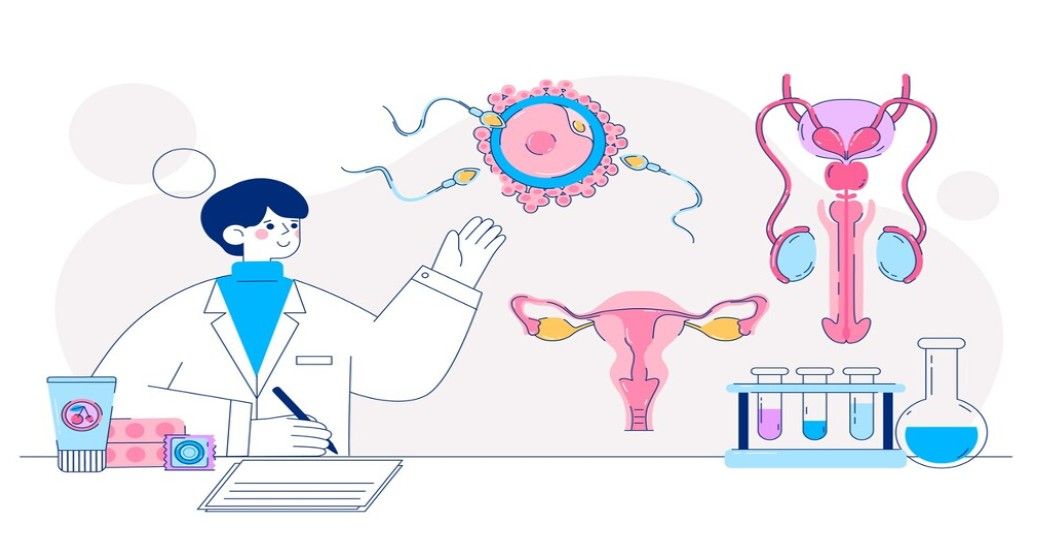Diabetes Management
Managing Gestational Diabetes: Diagnosis, Treatment, and Prevention
2 min read
By Apollo 24|7, Published on - 22 May 2024, Updated on - 24 May 2024
Share this article
0
0 like
.jpg?tr=q-80)
Gestational diabetes, a temporary health condition that affects pregnant women, is a concern that deserves careful attention. With it comes the risk of both mother and baby developing type 2 diabetes later in life. However, awareness about the condition, its diagnosis, and treatment can be a strong ally in navigating this journey smoothly.
Understanding Gestational Diabetes
Gestational diabetes emerges when your body fails to produce enough insulin - the hormone that aids in the conversion of glucose into energy. This failure results in an excess of glucose in your bloodstream. Although this is a common occurrence in pregnancy, for some individuals, it could lead to gestational diabetes.
Diagnosing Gestational Diabetes
Typically, doctors screen for gestational diabetes between the 24th and 28th weeks of pregnancy. The screening includes a glucose challenge test followed by a glucose tolerance test if the first test shows high blood sugar levels. The earlier the disease is detected, the better it can be managed to prevent complications.
Lifestyle Interventions
Dealing with gestational diabetes might involve some lifestyle changes. Medical nutrition therapy plays a critical role here, where a dietician helps you craft and follow a balanced diet plan. Regular exercise is just as important, aiding in keeping your blood sugar levels under control.
Insulin Therapy
In certain cases, despite dietary modifications and increased physical activity, blood glucose levels might stay high. In such instances, insulin injections are initiated to ensure blood sugar is kept within the desired range.
Postpartum Follow-Up: Preventive Care for the Future
It's essential to understand that while gestational diabetes usually resolves post-delivery, it does increase the risk of developing type 2 diabetes later in life. This makes regular follow-ups after delivery crucial to monitor blood sugar levels and assess future risk factors.
Managing gestational diabetes might seem overwhelming initially. However, with timely diagnosis, a sound treatment plan, and a healthy lifestyle, it can be effectively managed. Remember, your health is vital for your baby's well-being.
Diabetes Management
Consult Top Diabetologists
View AllLeave Comment
Recommended for you

Diabetes Management
Navigating Reproductive Issues Caused by Diabetes
From hormonal imbalances leading to irregular periods in women and reduced sperm quality in men to increased risks of miscarriage and congenital abnormalities, diabetes poses numerous challenges. However, with proper blood glucose control and lifestyle interventions, these hurdles can be managed.

Diabetes Management
Can One Develop Diabetes at a Young Age?
Diabetes can develop at a young age, not just in older adults. Type 1 diabetes, autoimmune and diagnosed in childhood or adolescence, contrasts with Type 2, more common in young people, linked to obesity and lifestyle. Risk factors: family history, obesity, sedentary behavior, poor diet, puberty hormones. Prevention involves lifestyle, check-ups, family support, and education. Diabetes affects all ages, including teenagers and children.

Diabetes Management
Jackfruit and Diabetes: Benefits, Consumption Tips, and Nutrition Facts
Debating if jackfruit is good for diabetes? It can be! Despite being sweet, jackfruit's low glycaemic index and high fibre content can aid in managing blood sugar levels. Yet, portion control is key. For comprehensive guidance on managing diabetes, the Apollo Super 6 programme can offer invaluable support, from diet plans to expert consultations.
Subscribe
Sign up for our free Health Library Daily Newsletter
Get doctor-approved health tips, news, and more.
Visual Stories

8 Fruits That are Incredibly Healthy for Diabetes
Tap to continue exploring
Recommended for you

Diabetes Management
Navigating Reproductive Issues Caused by Diabetes
From hormonal imbalances leading to irregular periods in women and reduced sperm quality in men to increased risks of miscarriage and congenital abnormalities, diabetes poses numerous challenges. However, with proper blood glucose control and lifestyle interventions, these hurdles can be managed.

Diabetes Management
Can One Develop Diabetes at a Young Age?
Diabetes can develop at a young age, not just in older adults. Type 1 diabetes, autoimmune and diagnosed in childhood or adolescence, contrasts with Type 2, more common in young people, linked to obesity and lifestyle. Risk factors: family history, obesity, sedentary behavior, poor diet, puberty hormones. Prevention involves lifestyle, check-ups, family support, and education. Diabetes affects all ages, including teenagers and children.

Diabetes Management
Jackfruit and Diabetes: Benefits, Consumption Tips, and Nutrition Facts
Debating if jackfruit is good for diabetes? It can be! Despite being sweet, jackfruit's low glycaemic index and high fibre content can aid in managing blood sugar levels. Yet, portion control is key. For comprehensive guidance on managing diabetes, the Apollo Super 6 programme can offer invaluable support, from diet plans to expert consultations.


